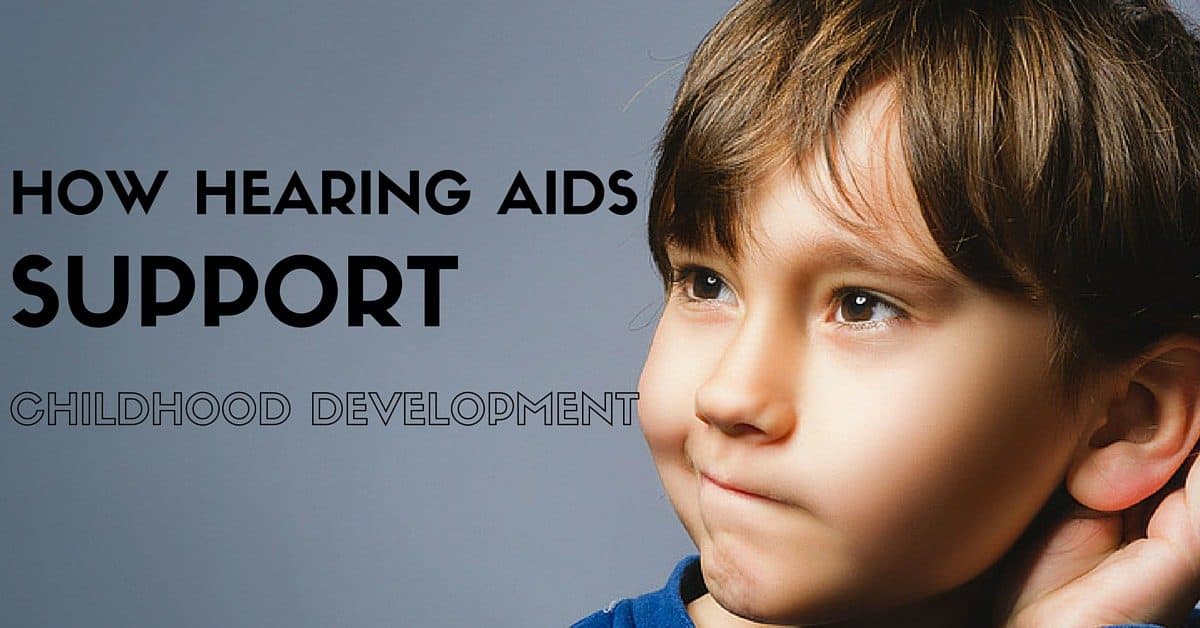How Hearing Aids Support Childhood Development
Prevalence of Childhood Hearing Loss
In the United States, two to three out of every 1,000 children experience hearing loss in one or both ears. While hearing loss is the third most common medical condition in the US, it mostly affects people who are above the age of 65 (one-third of people over 65 experience hearing loss, and half of people over the age of 75 experience hearing loss).
Approximately 15% of young people (age 6 to 19) experience hearing loss in on or both ears. In newborns, 50% of hearing loss cases are due to genetic factors.
Because hearing loss may be developed as a child grows, it is crucial to pay attention to the signs of hearing loss in children.
How to Identify Hearing Loss in Children
In adults, hearing loss is usually an acquired condition, which comes with aging or exposure to loud noise. Hearing loss in children, on the other hand may be congenital, which means they were born with the condition. Congenital hearing loss may be caused by genetics, infection during pregnancy, or premature birth.
Hearing loss may also be acquired. Otitis media (ear infections) are common in children, as their Eustachian tubes are not fully formed. As a result, they are more susceptible to fluid. Hearing loss may also occur due to infections such as meningitis or measles. Head injury or exposure to loud noise are both possible causes of hearing loss in children.
The Center for Disease Control outlines milestones that babies and children should reach by certain ages. You may find an extensive list of the communication milestones here.
General signs include: delayed speech, unclear speech, not following directions (which parents may mistake as a child ignoring/not paying attention to instructions), and turning up the volumes too high on TV or personal electronic devices.
Newborns are screened for hearing abilities within their first days of life. Hearing exams scan the infant’s brain to record responses to sound. These screenings are simple and painless. As children grow, it is recommended for them to take annual hearing exams. Grade-school aged children generally take hearing exams as a part of their physical – but if they don’t, it is important that you maintain this practice. Early intervention in hearing loss is very important to childhood development.
Hearing Loss & Childhood Development
There are four main ways in which hearing loss may affect childhood development. According to the American Speech-Language-Hearing Association (ASHA), hearing loss may delay the development of receptive and expressive communication skills. As a result, children may struggle in academic environments, and hearing loss may contribute to learning problems. Socially, difficulty with communication may interfere with socio-emotional development, as children will struggle to communicate with their peers. Over the long term, academic and social development may affect vocational choices in the future.
How Hearing Aids Support Childhood Development
If childhood hearing loss is identified, there are many options to treat the condition. There are many advanced hearing aid solutions to treat childhood hearing loss. Hearing aids are designed to address speech recognition, which supports language development and communication. Additionally, hearing aids help with sound localization, which supports children in situating themselves in their environment. This is especially important because children are active – and sounds play a large part in determining distance, as well as spatial reasoning.
In terms of aesthetics, contemporary hearing aids are sophisticated, sturdy, and discreet. There are many hearing aids with a long battery life and water-resistant coating to withstand the daily activities of a child. With wireless connectivity, hearing aids open up a world of accessibility for children, allowing them to connect to amplification devices in the classroom and personal devices for entertainment at home.
If you believe your child may be experiencing a hearing loss, contact us at My Hearing Centers to set up an evaluation and begin the journey toward better hearing.


